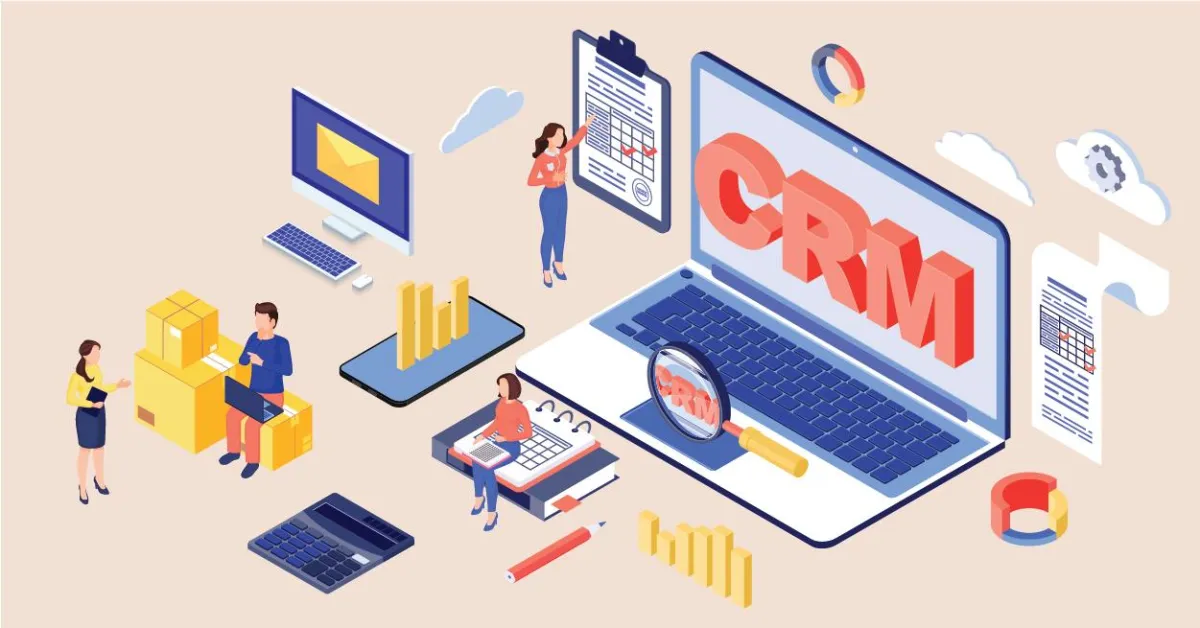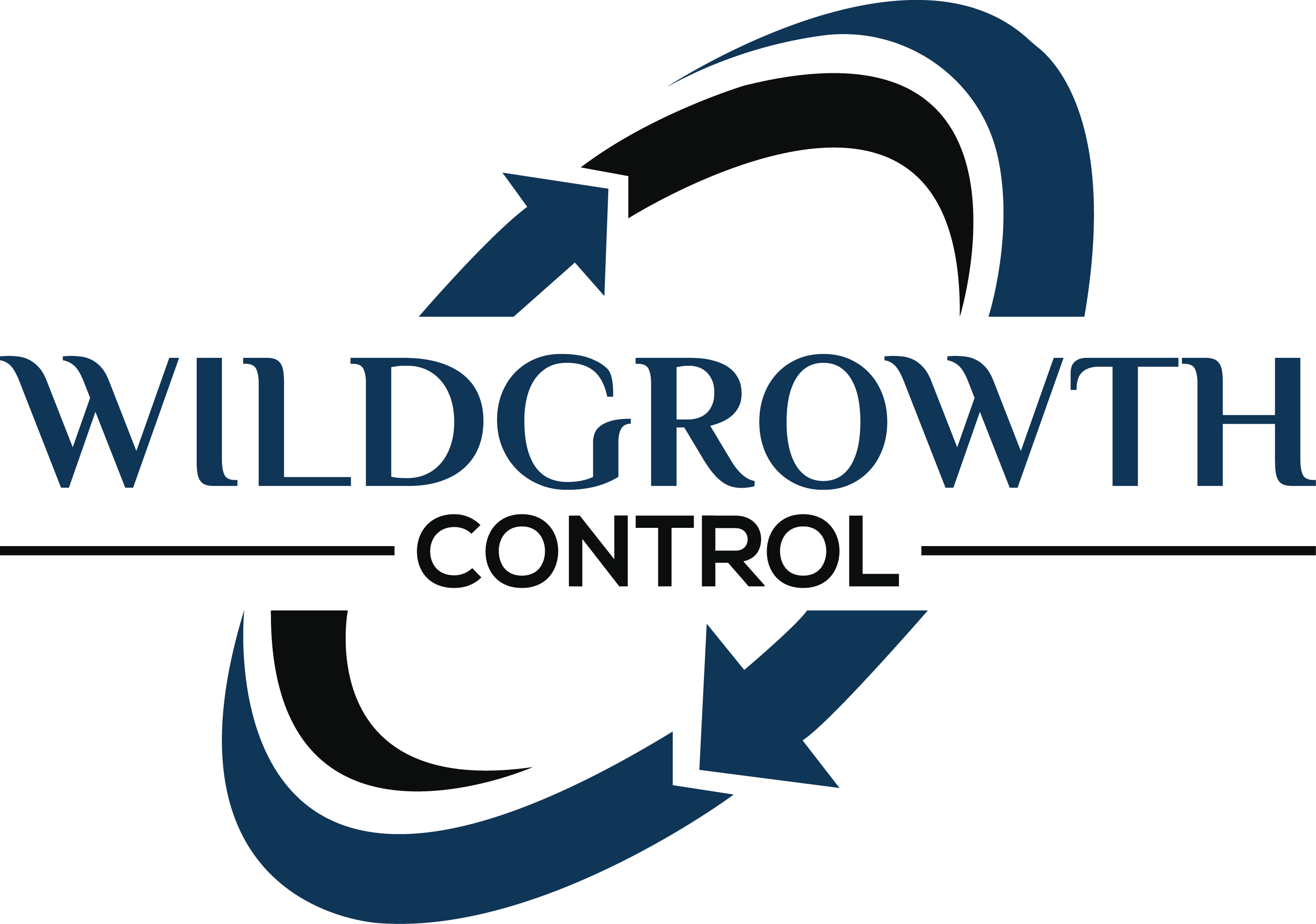CRM for Small Law Firms: Top Tools & Benefits in 2025
A CRM, or Client Relationship Management system, helps you stay on top of every contact, lead, and conversation. It organizes your data, automates your follow-ups, and ensures that no opportunity is lost, no matter how busy your calendar looks.
And here's the good news: today's CRMs aren't just for large firms with whole IT departments. There are tools built specifically for solo attorneys and small legal teams, affordable, easy to use, and ready to integrate with the tools you already use.
In this guide, we'll walk you through:
What a CRM is (and how it works in a legal setting)
The key benefits for small law firms
Features to look for
Top CRM platforms for law firms in 2025
How to choose and implement the right one
Let's break down what makes a CRM the secret weapon for growing small law firms. We’ll also link out to our blog for deeper dives into CRM case studies and tech tips.

Table of Contents
1. What Is a CRM for Small Law Firms?
A CRM, Client Relationship Management system, is a tool that helps you manage every interaction with leads, clients, and contacts from one centralized dashboard. For small law firms, it serves as a digital assistant, keeping you organized, responsive, and efficient.
However, unlike general business CRMs, a legal CRM is specifically designed with the needs of law firms in mind.
That means it doesn't just track contact details, it handles legal-specific workflows like:
New client intake
Conflict checks
Appointment scheduling
Document requests
Consultation reminders
Referral tracking
You can think of it as your firm's memory bank. Every phone call, form submission, follow-up email, and scheduled consultation is logged and accessible when needed. No more digging through inboxes or sticky notes to find what was said or sent.
Legal CRM vs. Practice Management Software
It's essential to distinguish between a CRM and a practice management system. Practice management tools (like Clio Manage or MyCase) are great for handling existing cases, deadlines, tasks, billing, and documents.
A CRM focuses on everything that happens before a case is opened:
Capturing leads
Qualifying inquiries
Automating responses
Nurturing potential clients until they sign
Many firms use both, and the best CRMs also integrate with the solutions we offer for law firms to move clients from lead to case seamlessly, from first contact to case closed.
2. Key Benefits of Using a CRM in a Small Law Firm
Small law firms often lack the resources of a full marketing team, an administrative assistant, or an intake coordinator. That's precisely why a CRM (Client Relationship Management system) is such a valuable asset, it helps you do more with less.
Here's how a CRM can transform the way your small firm operates:
1. Organize Client and Lead Information in One Place
No more juggling spreadsheets, sticky notes, or inbox searches. A CRM keeps every lead, client, and conversation in one system, accessible from any device. CRMs are the backbone of modern lead management, with every name, detail, and status at your fingertips.
You can instantly view:
Contact details
Case status
Last touchpoint
Notes from calls or meetings
Upcoming tasks or reminders
Why it matters: You'll never forget a name, lose a lead, or miss a follow-up again.
2. Improve Lead Conversion with Better Follow-Up
Most small firms lose leads not because of poor service, but because they fail to follow up on time. A CRM solves that with:
Automated email reminders
Custom intake sequences
Scheduled follow-ups and notifications
You can even tag leads by case type, urgency, or referral source to prioritize who needs attention first.
Why it matters: Faster follow-up = higher conversion = more clients.
3. Save Time on Intake and Onboarding
With CRM automation, you can:
Send custom intake forms
Auto-respond to web inquiries
Trigger welcome emails or appointment confirmations.
This means fewer back-and-forth exchanges and less time spent chasing down paperwork.
Why it matters: You streamline client onboarding without adding staff or hours to your day.
4. Strengthen Client Communication
Every message and interaction is logged in the CRM, so you always know the context when speaking to a lead or client. Some CRMs even let you send texts or emails directly from the platform. CRMs can also log inbound and outbound calls to give full context when following up.
Why it matters: You maintain a balance between personal and professional, even as your caseload grows.
5. Track Marketing ROI and Referral Sources
You can use the CRM data to get your marketing report on referral sources and campaign effectiveness. Want to know which campaigns or channels are bringing in clients? A CRM tracks:
Where leads originated (e.g., Google, referral, Facebook, etc.)
What converted them
How long did it take to sign
Why it matters: You can double down on what's working and stop wasting money on what's not.

3. Must-Have CRM Features for Small Law Firms
Not every CRM is built with law firms in mind, and not every feature matters when you're running a solo or small practice. To maximize your investment, seek tools that offer these essential features, specifically tailored to your legal workflow.
1. Contact & Matter Tracking
At the core of any CRM is the ability to manage contact records. For law firms, that means tracking not just names and emails, but:
Case type
Source of inquiry
Status (lead, consult scheduled, retained)
Linked matters or notes
Why it matters: Everything you need to know about a lead or client is visible at a glance, and tied to the relevant matter.
2. Intake Automation
Modern CRMs allow you to streamline the intake process through:
Customizable online forms
Auto-response emails
Intake sequences with conditional logic (e.g., if X is selected, send Y)
Why it matters: You collect accurate client information upfront and move faster from inquiry to consultation, without wasting admin hours.
3. Task Management & Follow-Up Reminders
CRMs can also log inbound and outbound calls tied to each task or follow-up, making sure nothing slips through the cracks. A good CRM should help you stay on top of what happens next:
Assign tasks to yourself or team members
Set automated reminders for calls, document requests, or check-ins.
Utilize pre-built workflows to guide each stage of the intake process.
Why it matters: You never forget to follow up, send a form, or move a lead forward.
4. Document Management Integration
You don't need a complete document system inside your CRM, but it should:
Let you attach files to contacts or leads
Integrate with Google Drive, Dropbox, or your DMS
Trigger document requests or e-signature workflows
Why it matters: Intake becomes faster and cleaner when forms, IDs, and retainer letters are managed in one place.
5. Email & Calendar Sync
Choose a CRM that connects to Gmail, Outlook, or your preferred email client:
Automatically logs communication history
Syncs appointments with your firm calendar
Allows sending emails or order confirmations directly from the CRM
Why it matters: You avoid missed messages and keep communication streamlined.
6. Reporting & Analytics
Even for small firms, data matters. Look for reporting features that show:
Conversion rates
Referral sources
Lead response time
Time from inquiry to retention
Why it matters: You get visibility into what's working and what needs fixing.
4. Top CRMs for Small Law Firms in 2025
There are dozens of CRM platforms available, but only a few are specifically designed for the unique needs of small law firms. Here's a breakdown of the five top options worth considering in 2025, each with strengths depending on your firm's size, tech comfort level, and practice style.
1. Clio Grow – Best All-in-One Legal CRM
Clio Grow is part of the broader Clio ecosystem and is built specifically for law firms. It's designed to manage every part of the pre-client journey, from lead capture to signed engagement.
Key Features:
Custom intake forms
Email automation and follow-ups
Online scheduling
E-signatures and document requests
Seamless integration with Clio Manage
Why small firms like it: It's easy to use, integrates well with case management, and scales with your practice.
Best suited for: Firms already using Clio or seeking a comprehensive intake-to-case workflow.
2. Lawmatics – Best for Automation & Marketing
Lawmatics goes beyond basic CRM. It offers powerful intake workflows, email drip campaigns, and robust lead tracking with detailed reporting.
Key Features:
Visual workflow builder
Client onboarding automations
Email and SMS campaigns
Analytics dashboard
Integrates with Clio, PracticePanther, and others
Why small firms like it: It's built for growth-minded attorneys who want to automate and optimize lead management.
Best for: Firms that rely heavily on digital marketing or want to automate follow-ups and intake steps.
3. MyCase CRM Module – Best for Built-In Simplicity
If you already use MyCase as your practice management software, its built-in CRM features can handle lead intake and client engagement without needing extra tools.
Key Features:
Lead tracking and status updates
Integrated calendaring
Intake forms
Secure client communication
E-payments and invoicing
Why small firms like it: You don't need multiple platforms. Everything—from lead to billing, is in one interface.
Best suited for: Existing MyCase users or firms seeking a bundled solution with minimal setup.
4. Zoho CRM (Customized for Legal Use)
Zoho CRM isn't specifically built for law firms, but it's highly customizable and budget-friendly. With the proper setup, it can support complex workflows, client tracking, and intake management.
Key Features:
Custom fields and modules
Task workflows and reminders
Web form integration
Email and call logging
Affordable pricing tiers
Why small firms like it: It's flexible and cost-effective, especially for tech-savvy attorneys.
Best for: Firms with in-house marketing or admin support who want to customize deeply.
5. HubSpot CRM – Best Free Option with Growth Potential
HubSpot offers a robust free CRM with scalable features that grow with you. While not specifically legal, it's popular among small firms that need basic contact and pipeline tracking, along with strong marketing tools. Custom forms and CRM-driven outreach contribute to stronger AI reputation management and brand consistency.
Key Features:
Lead tracking and pipelines
Email templates and follow-ups
Meeting scheduler
Custom forms
Upgrade options for automation and reporting
Why small firms like it: It's free to start, easy to use, and integrates with tools like Gmail, Outlook, and Zoom.
Best for: Solo attorneys starting or firms that prioritize marketing outreach and want a no-cost entry point.
Want to test these options side by side? Schedule a demo to explore which platform fits your workflow best.

5. How to Choose the Right CRM for Your Firm
With numerous CRM options available, it's easy to feel overwhelmed, especially if you're running a small firm with limited time and technical support. The key is to match the tool to your real-world workflow, not the other way around.
Here's how to choose the right CRM for your small law firm:
1. Define Your Goals First
Before examining features or pricing, clarify what you need the CRM to accomplish.
Ask yourself:
Are you trying to fix lost leads and missed follow-ups?
Do you need to speed up client intake?
Are you tracking referrals or managing marketing outreach?
Do you want automation, or just better organization?
Why it matters: Different CRMs serve different priorities, some focus on marketing automation, others on intake, and some offer a balanced mix. Know your top 2–3 needs before evaluating tools.
2. Check Compatibility with Your Current Tools
Choose a CRM that integrates with the platforms you already use, like your practice management system (e.g., Clio, MyCase), calendar (Google/Outlook), or email client.
Checklist to review:
Does it integrate with your case management software?
Can it sync with your calendar for appointments?
Will it log emails automatically from Gmail or Outlook?
Why it matters: Poor integration leads to double work, scattered records, and frustrated staff. Make sure integrations respect your firm’s privacy policy and data handling standards.
3. Evaluate Ease of Use
A CRM is only useful if your team uses it.
Look for platforms with:
Simple, clean interfaces
Straightforward onboarding or training materials
Responsive customer support
Avoid CRMs that require heavy customization unless you have someone in-house to manage it.
Why it matters: The best CRM is one your team can adopt quickly and use daily, without friction.
4. Consider Firm Size and Budget
Small firms need cost-effective solutions that don't feel bloated or overbuilt. Be honest about how many users you'll need and which features are essential.
Tips:
Solo attorneys can often get by with 1–2 core features.
Small teams should look for scalable pricing or user-based plans.
Free CRMs, such as HubSpot, can be great starting points, but paid, legal-specific CRMs often save time.
Why it matters: Paying for unused features or getting locked into the wrong pricing tier can hurt your bottom line.
5. Take Advantage of Free Trials and Demos
Most CRM platforms offer:
14–30 day free trials
Live demos with support staff
Interactive tours of key features
Use this time to test real workflows like:
Creating a contact
Automating a follow-up
Booking a meeting
Logging an email
Why it matters: A hands-on test gives you the clearest picture of what works (and what doesn't) for your firm.
6. CRM Implementation Tips for Small Firms
Choosing the right CRM is only the first step, what matters is how you set it up and use it. The good news? You don't need an IT department or months of prep to make it work. With a few strategic moves, you can roll out your new CRM smoothly and start seeing benefits almost immediately.
Here's how to get it right from day one:
1. Start with a Simple Workflow
Don't try to automate everything on day one. Instead, choose one core process to focus on, like new lead intake or follow-up reminders.
Examples:
Set up an automatic reminder to follow up 2 days after a consultation
Create an intake form that sends client info directly to your CRM
Build a simple “lead → consult → retained” pipeline
Why it works: You'll see quick wins without overwhelming your team or disrupting your current process.
2. Clean Up Your Existing Contact Data
Before importing your client or lead list, take time to:
Remove duplicates
Standardize contact formats
Tag leads by practice area, referral source, or status
Why it works: Clean data leads to better automation, more accurate reporting, and fewer mistakes in the long run.
3. Involve Your Team (Even If It's Just You + One Assistant)
Even in a small firm, involving whoever handles client data, paralegals, administrative staff, and receptionists, is essential. Make sure everyone understands: Whether you’re a solo attorney or a hair salon owner using CRM for bookings, team alignment is key.
What the CRM does
How they'll use it daily
Why it improve their workflow
Why it works: Clear communication prevents resistance and builds daily adoption.
4. Create Templates for Repetitive Tasks
Most CRMs allow you to set up:
Email templates for lead follow-ups
Task workflows for onboarding
Intake forms for specific case types
Why it works: You save time, reduce manual errors, and deliver a consistent client experience every time. Use free resources like import templates or data-cleaning checklists to prepare your contact list.
5. Monitor Usage and Optimize Over Time
Once the CRM is in place, track how it's working:
Are leads being consistently followed up with?
Are tasks being completed on time?
Are there bottlenecks in intake or handoff?
Schedule a review after 30, 60, and 90 days to refine workflows and add more automation as needed.
Why it works: Small tweaks over time keep the system aligned with how your firm works.

7. Final Thoughts – CRM Isn’t Optional for Growing Law Firms
If you're running a solo or small law firm, a CRM isn't just "friendly to have", it's the system that keeps your firm from dropping leads, missing follow-ups, or drowning in admin.
In 2025, clients expect responsiveness, professionalism, and personalized communication from the very first interaction. A legal CRM helps you deliver all of that, without burning out your team or stretching your resources.
The right CRM gives you structure, visibility, and scalability. It automates follow-ups, keeps contact records clean, and ensures consistent lead conversion. And most importantly, it gives you the confidence that no opportunity is falling through the cracks.
Start small. Test one workflow. Build from there.
Because when your firm's growth depends on relationships, a CRM is the tool that helps you manage them better.
Ready to upgrade your client management process? Contact us to find the CRM that fits your needs.
8. FAQs – CRM for Small Law Firms
What is a CRM in a law firm?
A CRM (Client Relationship Management system) is software that helps law firms track leads, manage client communications, and automate follow-ups. It's designed to organize and streamline everything that happens before (and sometimes after) a case begins.
How is a legal CRM different from a general CRM?
Legal CRMs include features specific to law firms, like client intake forms, legal-specific tags (e.g., case type, referral source), appointment scheduling, and compliance tools. Many also integrate with practice management platforms, such as Clio or MyCase.
Is CRM software secure for storing client data?
Yes, reputable CRMs use data encryption, secure cloud servers, and role-based access to keep client information protected. Look for platforms that meet legal industry standards for privacy and compliance.
Do small law firms need a CRM?
Absolutely. Even solo attorneys benefit from having one place to track leads, send follow-ups, and automate intake steps. A CRM helps you stay consistent, professional, and efficient, without needing extra staff. A CRM, especially when paired with AI answering services, helps solo attorneys stay efficient and consistent.
Call 855-457-2803
Free 24/7 Strategy Session
Request a Call Back
NEED HELP? CONTACT US 24/7
(855) 457-2803
se habla espaÑol
Quick Links
AI Reputation Management
© 2025+ WildGrowthControl is an independently owned and operated company - all rights reserved.

